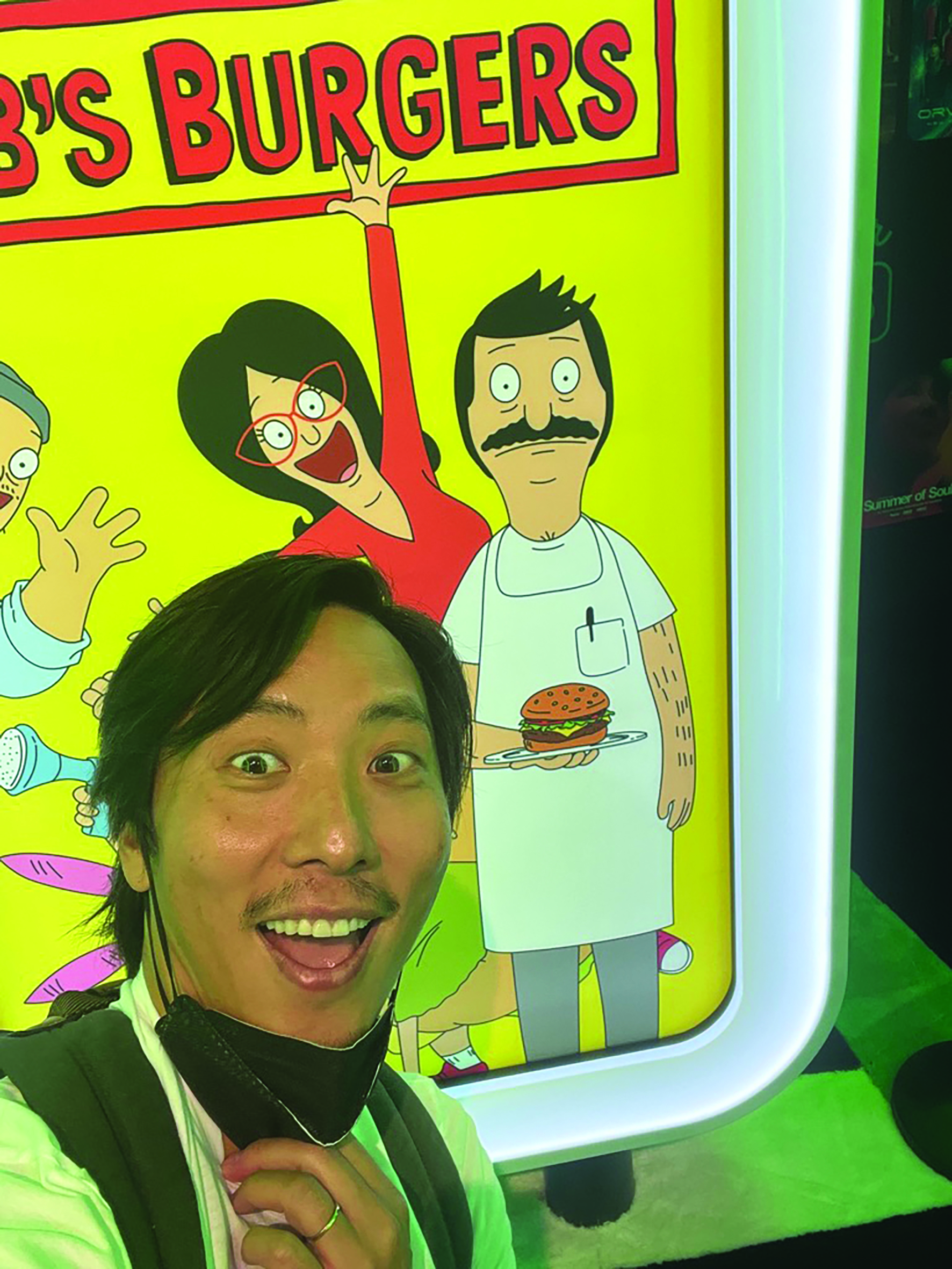
NATE KAN: How did you get started acting?
KELVIN YU: I grew up in Southern California, but not in LA proper. I wasn’t a Hollywood kid, but I was a drama geek. I got tapped on the shoulder, literally, when I was 13, by a teacher who suggested I audition for the school play. It’s a really powerful thing for somebody older to tell you that they see something in you. For me, especially as an Asian American growing up in a fairly white area, for Mrs. McIntyre to say, “Hey, I think you should audition for the school play,” is validating or, as I guess the kids are saying, I felt “seen.” And then from that moment on, I never seriously considered anything else.
So acting was largely the only career path you considered?
I always knew I was gonna audition for theater departments at the end of high school. I always knew I was gonna become a professional actor. And I did. That said, it wasn’t easy. Over 20 years ago, it’s hard to remember because the movement towards diversity has taken effect to some extent now and the internet has changed the entire game, but there was just nothing for me then. If you stacked a hundred scripts on a table, there might be five to ten roles in those hundred scripts for me, right? And so I was not playing a good numbers game, so I did everything that everybody else does — I waited tables for seven years. Auditioned. I did everything I could. I did one-liners. I had one line on Frasier. I had one scene in ER. And then there came a point where I realized that the business model that I was engaged in was not sustainable.
They were never gonna give me the role that you lived through as a viewer and I’m not just talking about leading man roles. They were just never going to give me a role where people were actually experiencing my experience. I was always gonna be sort of peripheral or ancillary to whatever story was being told. And that was just a gross feeling.
What sort of roles were you doing at the time?
What I was doing around that time, which makes me laugh a lot now, was being hired to kill my spouse or my sister on these cop procedurals. Whether it’s CSI, Without A Trace, or The Closer, they do like, one Mexican episode a year, one Chinese episode, or one Middle Eastern episode. So whenever they did the Chinese episode or the Korean episode, it was always some jilted husband whose wife got an email address and he was so ashamed of her – because they didn’t really know what they were writing. I came from drama school and grew up in the theater and so I could blubber my way through a confession in those auditions. And so I got that role like, six times. So I was working a lot, but you get to a place where you think, “I have more to offer.” And I think in general, the actor’s life can be more fulfilling because the act of acting is to embody the experience.
What is it about being an actor that’s rewarding or challenging?
Whether you’re a producer, writer, director, or crew member, you don’t get down on the playing field and throw the touchdown pass. The actor gets to do that. Even though an offensive coordinator and a bunch of assistant coaches and a head coach designed that play for you, you get that ball into the end zone or you take that three-pointer at the buzzer and that can be incredibly meaningful in life.
The problem is it only happens once in a blue moon and you have no control over when it happens, and so you wake up every day waiting for the phone to ring and wondering if someone out there likes you or thinks you’re interesting. So you do that calculation, “Is that touchdown pass worth it if you are just gonna sit around and wait for somebody to call your number for your whole life?”
While you were continuing to act, how did you transition into writing?
I started writing poor, terrible, unreadable scripts around 2005, 2006. While I waited for somebody to like my acting, writing gave me the gift of waking up in the morning with some agency. I got to wake up, start writing, and think, “Maybe today’s the day I come up with that great idea or I fix that broken idea into something slightly better.” It gave me empowerment, agency, and mental health. It was like a therapeutic device to get through the waiting in an acting career.
Could you talk about how that led to Bob’s Burgers?
It was a couple years of writing along with another guy named Steven Davis. I had told him at the time to take my name off our scripts because I was ashamed of them and I didn’t think they were any good. And then he calls me and he says, “Look, I have a meeting with Family Guy and I just feel like you should take the meeting with me.” We took the meeting with Family Guy and right away they told us that it was for another show. So we’re like, “Great. We got bait-and-switched here.” They said, “It’s for this new show called Bob’s Burgers.” We watched the presentation for it and it seemed like something genuinely special.
We got that job and we thought it was going to be a fun three or six months max, and it’s been 14 years and the show’s still on the air. So somehow my writing career just got on the expressway. You just can’t plan these things.
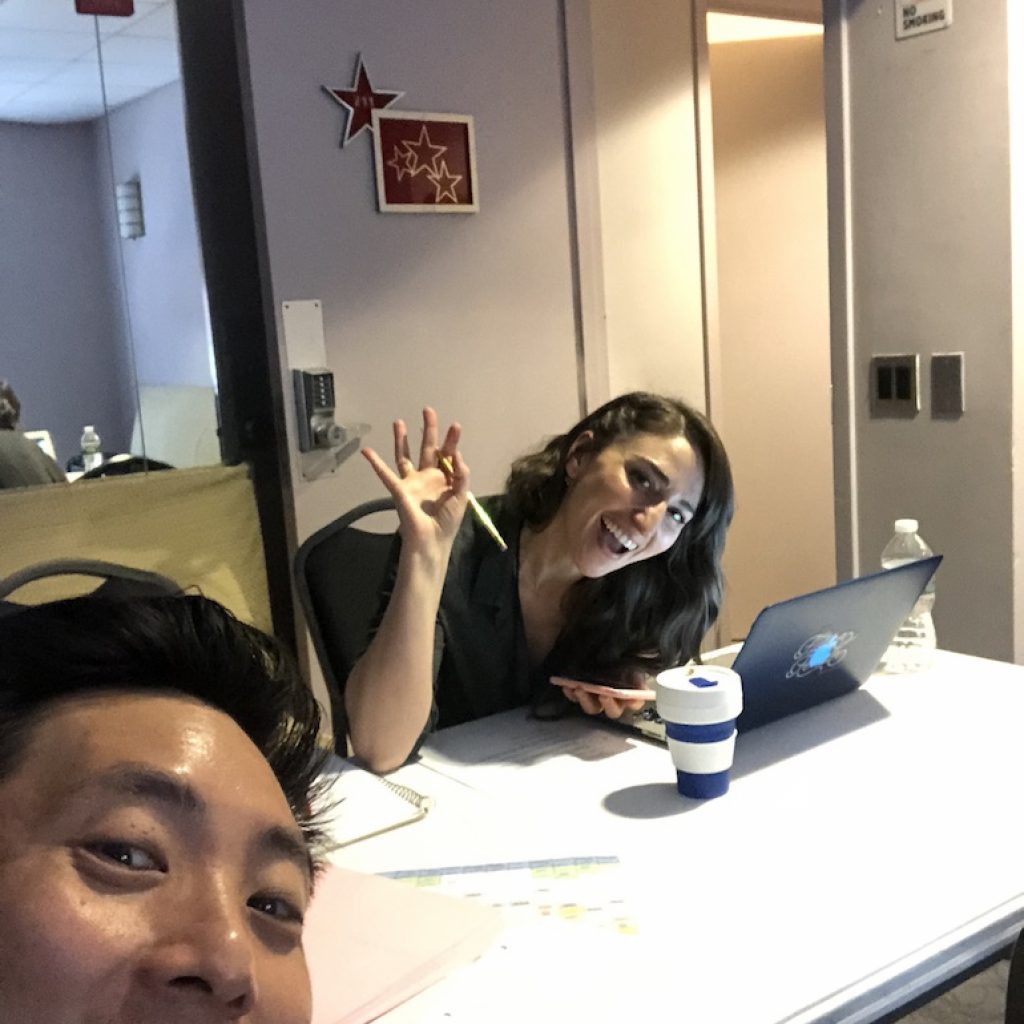

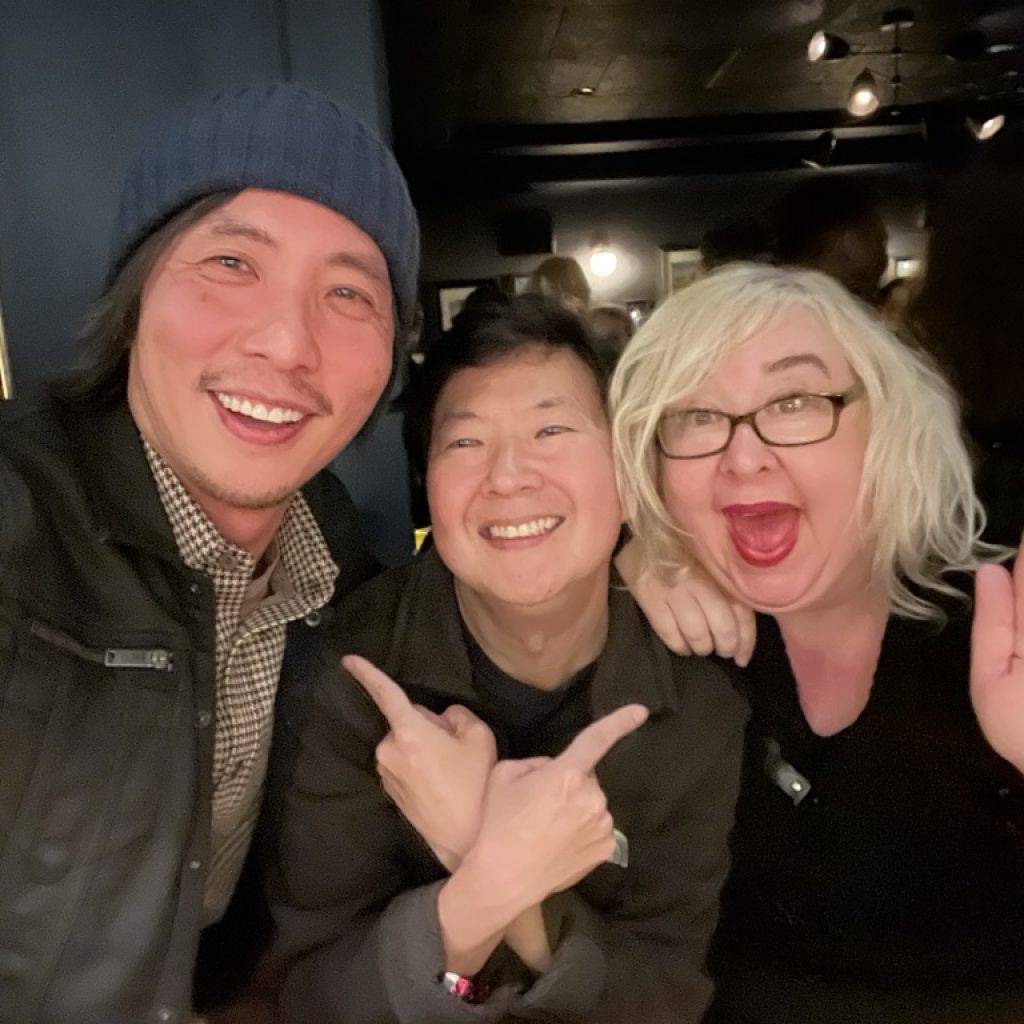
What is it about the writing for Bob’s Burgers that sets it apart from other sitcoms?
Comedy is contextual, and generally things are funny because of the exact moment they’re funny in and most of the time they’re not funny over the test of time. A lot of times they become problematic. Bob’s Burgers was created by Loren Bouchard in 2008, and I started writing for it in 2010. The notes we received were like, “Can this be more like South Park? Can this be more like Family Guy?” That’s what people were enjoying about “adult animation,” like, “Oh, they made fun of this celebrity. They said something snarky about this woman’s body.”
Loren Bouchard was coming from his own sensibility and worldview, and he was challenging us to be funny without punching down. Bob’s Burgers is an anomaly because the family loves each other. They go towards compassion and greater empathy. I think the world and comedy in general were turning that way, so we were lucky to be part of that. We got tweets and emails from people saying they would leave it on at night, because it was soothing and helpful during whatever they were going through, whether it was their adolescence or anxiety. And I’ve taken that with me as a writer, the ability to be funny and kind at the same time.
How do you accomplish something like that where you need to balance being funny and kind, cover different relevant issues, and all without being too heavy-handed or feeling like you’re pandering?
We made 250 episodes of Bob’s so far, and we’re not done at all. 250 times I’ve watched somebody come up with an idea, generate some pitches, put that on a board, turn that into a pdf, read that in front of ad people, have artists come and draw that idea, and then we put that on TV. I’ve seen it all happen. I’ve seen great ideas turn into stinkers. I’ve seen kind of medium to lukewarm ideas turn into some of our best episodes. So I think that’s sort of my experience of Malcolm Gladwell’s “10,000 hour rule,”* just watching people come up with something.
The other part of this is the staff, which is lightning in a bottle. In short, I think the recipe is that we made each other laugh. It’s always being true to what makes you laugh in the moment and then just having the faith that even if it fails in the marketplace, you’ll be able to sleep at night because you made the thing that you liked. Versus pandering and having that fail and feeling, “I didn’t make the thing I liked and it failed. What would’ve happened if I made the thing I liked?”
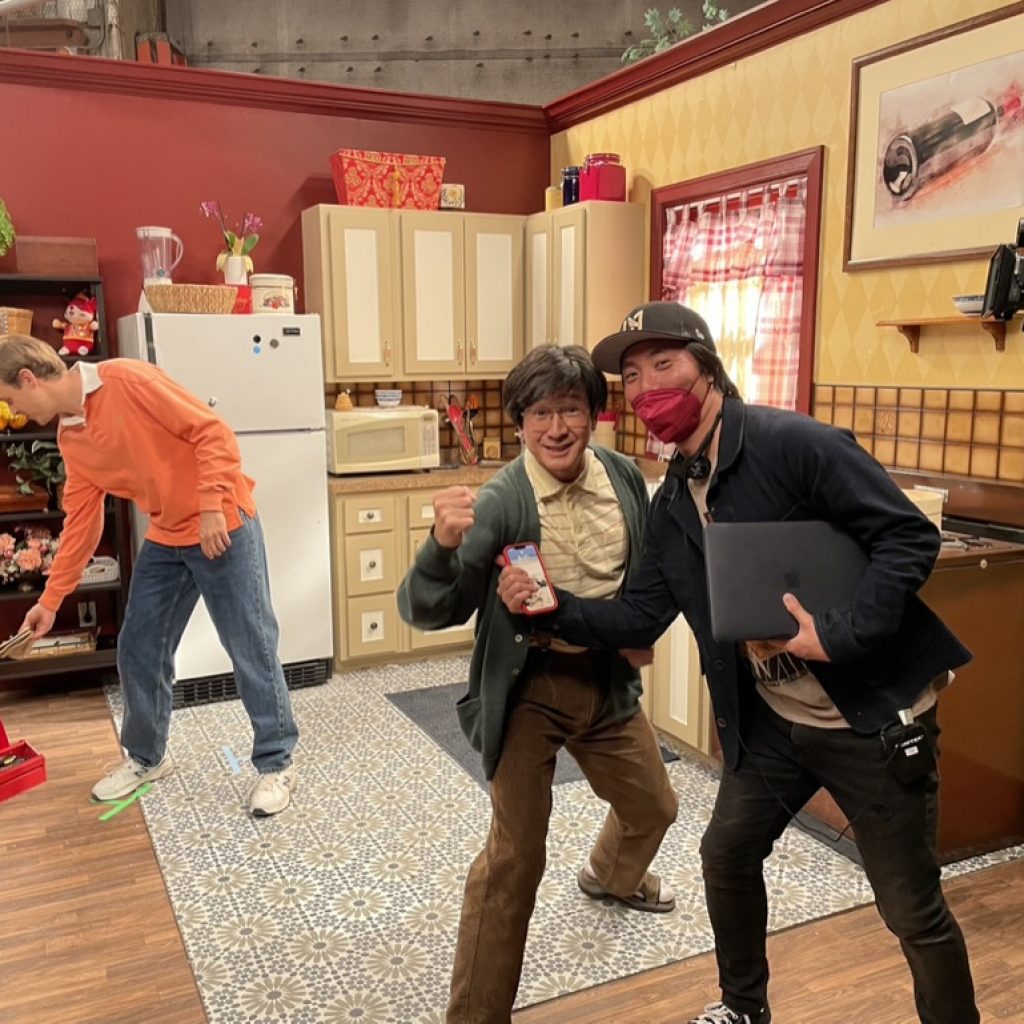
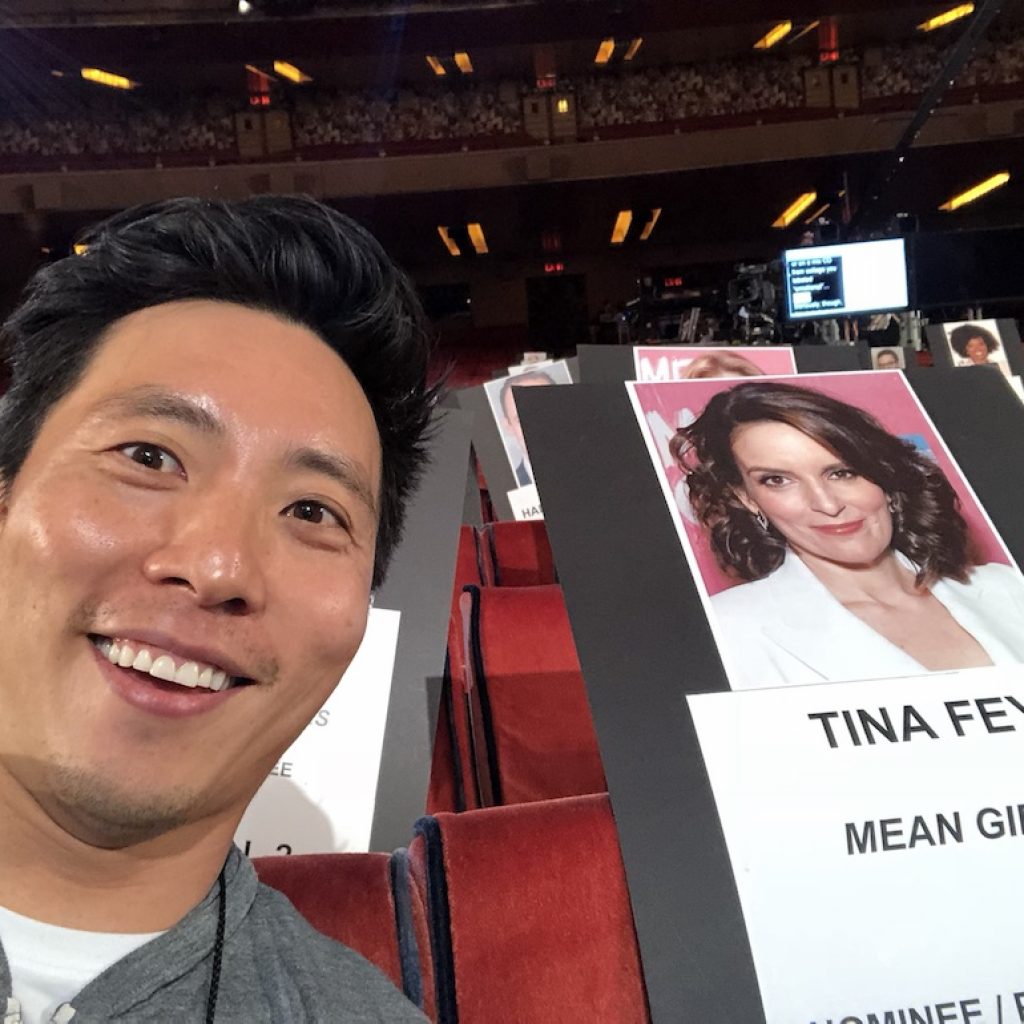
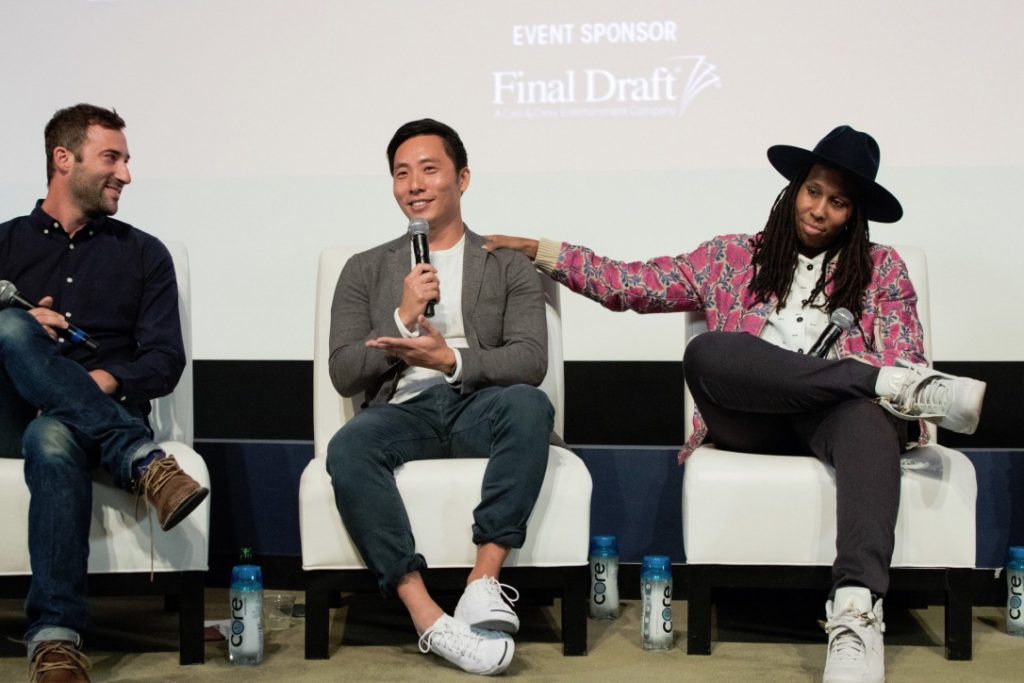
You’re currently an Executive Producer on projects such as American Born Chinese . What’s the journey like getting into leadership positions like that?
There’s almost a militaristic structure to TV writing where you come in as a Staff Writer and then you move up to Story Editor – this is how your representation negotiates for you – then Executive Story Editor, and then I think it’s Producer, Supervising Producer or Co- producer, Co-executive Producer, Executive Producer, and then Showrunner.
So I started to work on other projects like Master of None with Aziz Ansari and Alan Yang, which was also really illuminating for me because they’re sort of my cohort demographically. They look like me, they talk like me, they grew up like me. And so to watch them make their own show and be specific about who they are and the things they want to say was really informative for me. You can go and tell that story and if you tell it well, people will watch. It was a really successful show and kudos to them for changing the American view of people that look like us — that you can be a bon vivant living in New York having martinis and eating at the best restaurants and dating whoever you want. Aziz shifted the perception.
Granted the road ahead is still a long one, how do you think representation has changed since you started out?
I was on a plane recently on a nine hour flight and I have a one-year-old so I’m the guy walking up and down the aisle with the baby so she doesn’t bother anybody. I got to see what everybody’s watching and I saw a lot of Wakanda Forever, because that’s the big movie right now, but like everybody else was watching Friends. It was so mind boggling to me. It’s such a cultural force and it has wired our brains to see the world in a certain way.
Yes, diversity is happening. Yes, Crazy Rich Asians did well in the box office. But Friends and Seinfeld and The Office and sitcoms of the 80’s and 90’s are in our DNA. Yes, we’re starting to chip away, and I don’t want to diminish Shang Chi or Master of None or Fresh Off the Boat, but it’s drops in an ocean. I used to be hunting for crumbs at the bottom of a table and I dare say that most of us still are.
If you take a quick snapshot of the whole field, things have not shifted in a grander sense. I’ve had a really wonderful experience over my now 25 year career but it’s definitely been in the context of limited opportunities.
Do you think anything could possibly accelerate Asian American representation in popular culture?
I think we’re in this phase where Asian Americans are perceived as trendsetters, DJs, or elite chefs or something like that. We’re almost fetishized for our sense of culture and trends, but I think you have to accept the process to some extent. Italian Americans in the ’70s probably rolled their eyes when there was “yet another mafia story.” But those stories helped to imbue American society with Italian American culture. In the same way, you and I might roll our eyes at another martial arts movies, but that’s the process of the American canon — normalizing you and then you can have your seat at the table.
Once people have seen your face in an interesting narrative, they might become interested in something that’s five degrees off that — a little less martial arts or mafia each time — until we get to a completely different story. It’s not so linear, but that’s how it might be happening. We’ll get to a place where an Asian American story is just an American story. I think we’re moving exponentially faster. It’s a balancing act because you want to stay true to your community, but you’re trying to sell your product to a wider market.
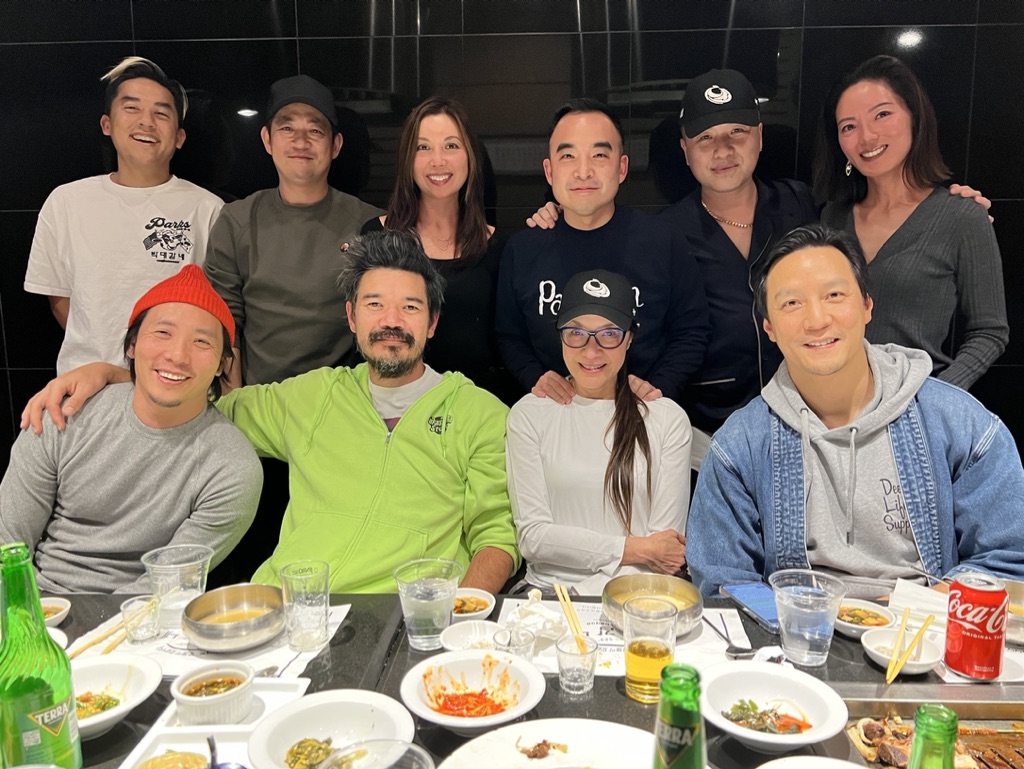

What do you keep in mind as you’re maintaining this balancing act?
It all really starts with what I call “the squishy place.” It’s that place inside you that is warm, fuzzy, squishy, and almost cringey. I think everybody has it and everything you’re making has to come from there. It can’t come from a market analysis. It has to come from your, like, rat brain, like five-year-old Nate or five-year old Kelvin that’s just living in pure presence. And it can be painful. I’m not saying it’s all happy – it can be from somewhere painful like your parent’s divorce or political strife – but when you build something out from there it might become a movie, it might become a rap album, it might become a pot of clay. But it has to come from there because you work too f***ing hard and it’s too stressful to not be devoting your time and energy to that thing.
That’s definitely a strong message for not just this generation but the next. What would you say to a younger version of yourself?
I think a lot of people, especially for this younger generation, the daily to-do is to crack the algorithm and beat the system somehow. I think that’s the wrong way to go about making art in general, because eventually technology will – like it always does – fill that space because that’s what we build it for. But the one place it will never infringe upon, I think, is that human squishy place. By definition, technology can’t go to that nonsensical, purely God space or whatever you want to call it. And so I think this algorithmic generation could be an enlightened renaissance of the squishy place for humans because we are now so free to just live in that space and use the machinery we’ve built to help us create art with it. So I think that’s the fuel we should keep mining rather than trying to crack a code. I think that it’s about embracing where we’re at in the moment and to some extent embracing boredom. ▲
*In his book Outliers: The Story of Success, Malcolm Gladwell refers to the 10,000 hour rule to mean that the key to becoming a true master of something is to practice it for 10,000 hours.
